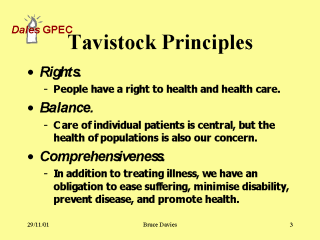| front |1 |2 |3 |4 |5 |6 |7 |8 |9 |10 |11 |12 |13 |14 |review |
 |
Rights This principle causes more difficulty than any other, particularly in the United States. What does it mean, to say that health care is a right when 40 million people in the United States and most of the world's population do not have access to health care? And isn't it even more absurd to argue that people have a right to health? The argument over rights extends back to the 18th century, with Tom Paine arguing for them and Jeremy Bentham arguing that they were "nonsense on stilts." For every rights holder, argued Bentham, there must be an obligation provider. But where is that provider in the case of health care or health? Rights, he argued, are not "in nature" but need institutions and legislation to make them real. Immanuel Kant distinguished between "perfect" and "imperfect" obligations. Perfect obligations impose a duty on particular people and institutions, whereas imperfect obligations do not. In many countries health care has become a perfect obligation (for instance, in Britain, where the government has accepted the duty to provide health care), although it remains an imperfect obligation in others. But imperfect obligations can moveperhaps through legislationto become perfect obligations. Amartya Sen, Nobel prize winning economist and master of Trinity College, Cambridge, England, explained to the meeting in April last year why it was not absurd to make health and health care a right. By making health and health care a right, he argued, we gain people's attention: a debate begins on who might have the duty to try to achieve health and health care for everybody. There is a pressure to begin implementation. And it's important also to make health a human right because the main health determinants are not health care but sanitation, nutrition, housing, social justice, employment, and the like. Any institution adopting the Tavistock principles would be accepting the imperfect obligation to bring health and health care to everybody. That would create a tension in institutions that provide care only for those who can afford it, but the tension ought to be creative. Those working in such institutions would search for opportunities to make health and health care more broadly available, even in countries beyond their own. And there would have to be deep discomfort around actions that restricted access to health and health care. Balance Comprehensiveness |
| front |1 |2 |3 |4 |5 |6 |7 |8 |9 |10 |11 |12 |13 |14 |review |